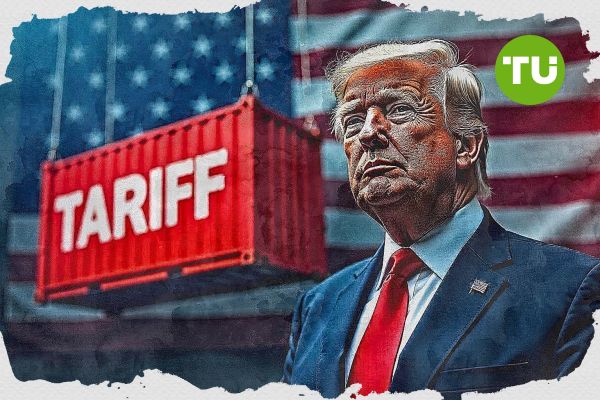Trump to introduce new tariffs of up to 70%
 Trump confirms sweeping new U.S. tariffs to begin August 1
Trump confirms sweeping new U.S. tariffs to begin August 1
President Donald Trump confirmed that his administration will begin notifying trading partners of a broad new wave of U.S. tariffs, with duties officially taking effect on August 1.
Trump emphasized that this next phase of his trade policy would be comprehensive, targeting a wide range of goods and countries that fail to strike agreements before his self-imposed July 9 deadline, reports Cryptopolitan.
“By the ninth, they’ll be fully covered,” Trump told reporters, referring to the expiration of the 90-day negotiation window he provided when unveiling the tariff plan on April 2. The new tariffs could range from 10% to 70%, notably higher than his previous ceiling of 50%, signaling a significant escalation in his push for “reciprocal” trade. Trump also reiterated that the U.S. would immediately begin collecting revenue from the tariffs starting in August, aiming to bolster domestic economic interests as the administration sharpens its focus on reducing trade deficits.
Trading partners scramble as July 9 deadline approaches
Global trading partners are now racing to finalize last-minute deals as the July 9 deadline looms. Trump’s tariff strategy has already yielded agreements with the UK and Vietnam, the latter securing a partial deal that imposes a 20% tariff on Vietnamese exports and 40% on transshipped goods — lower than initial threats but still substantial. Meanwhile, Indonesia expressed optimism about securing a trade pact covering minerals, energy, and defense sectors, while Cambodia confirmed it had agreed to a reciprocal trade framework after facing the threat of a punishing 49% tariff.
Negotiations with key players such as South Korea, Japan, and the European Union remain unresolved, though South Korea’s top trade envoy is set to visit Washington with new proposals in a final attempt to avoid harsh tariffs. Trump has maintained a tough stance, particularly toward Japan, suggesting the country could face tariffs as high as 35% if an agreement is not reached soon.
Markets and policymakers brace for economic ripple effects
Global markets reacted swiftly to Trump’s tariff announcement, with stock markets across Asia and Europe retreating amid investor concerns over the potential disruption to international trade. The U.S. dollar weakened as well, reflecting mounting economic uncertainty. While U.S. equity and bond markets were closed for the Fourth of July holiday, analysts predict heightened volatility when trading resumes. Federal Reserve officials remain cautious, with several policymakers warning that the proposed tariffs could fuel inflation — a key factor keeping interest rate cuts off the table despite persistent pressure from the White House.
Treasury Secretary Scott Bessent confirmed that the president is resolute in enforcing the deadline and that no automatic extensions will be granted unless Trump personally deems negotiations to be progressing in good faith. As the deadline nears, trading partners face a stark choice: secure a deal quickly or face substantial tariff penalties starting August 1.
Recently we wrote that the U.S. House of Representatives is set to mark a major turning point in crypto policy with the launch of “Crypto Week” on July 14, a legislative push designed to define the nation’s approach to digital assets.













































































































































